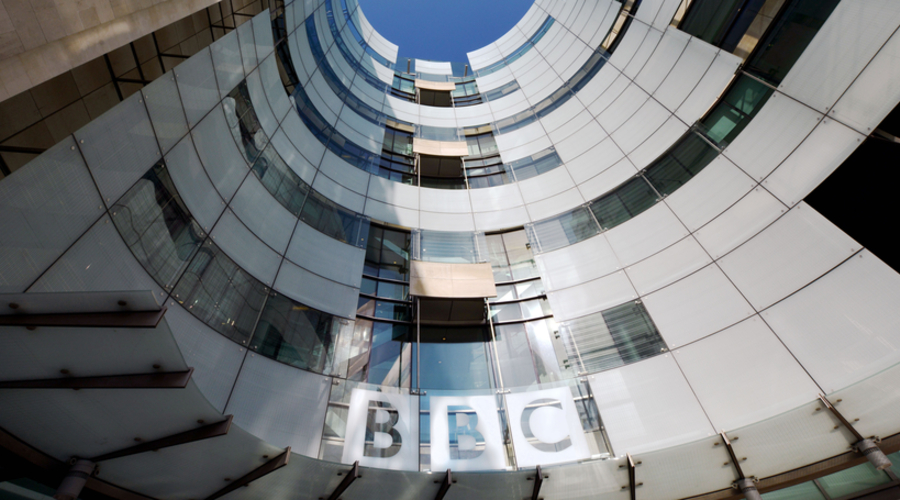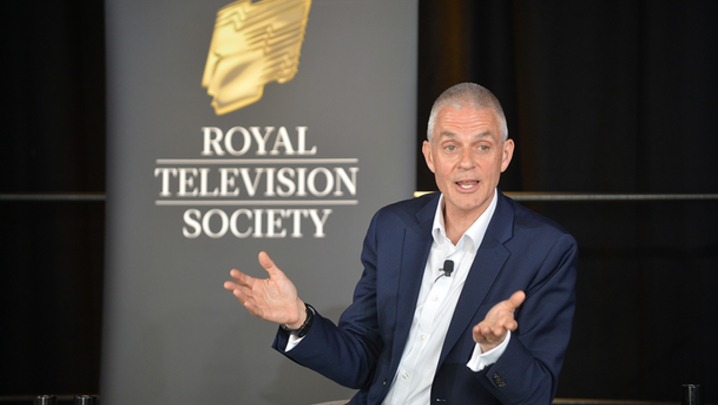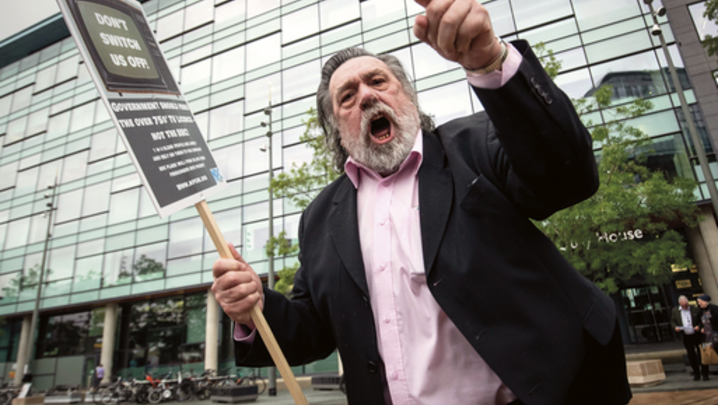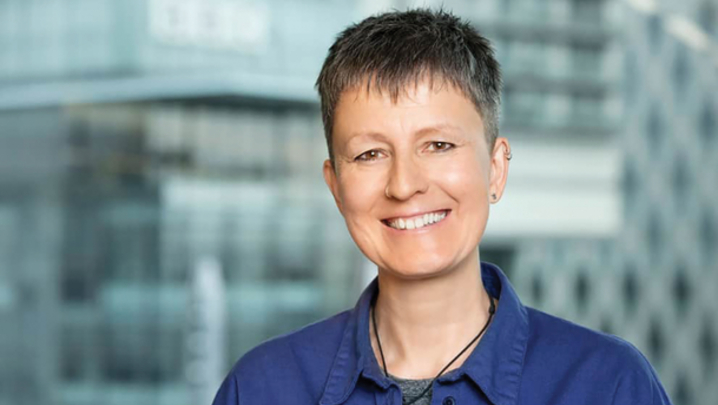The vexed question of free TV licences for the over-75s is concentrating minds at the BBC and beyond. Torin Douglas unpicks the arguments
Twenty years ago, as Chancellor of the Exchequer, Gordon Brown set a time bomb ticking. This summer, it looks likely to blow up in the BBC’s face.
In November 1999, the Guardian reported: “Chancellor Gordon Brown swept away the burden of the BBC licence fee for the over-75s yesterday, in a move that delighted the broadcaster but left the rest of the television industry alarmed that the move might presage a rise in the licence fee for others.”
It quoted the BBC as welcoming “this imaginative and innovative approach to a long-standing issue”. An unnamed TV executive suggested that there would be “less political flak” to a rise in the fee if pensioners were protected in this way.
That’s not how it looks today.
"The BBC now faces paying the entire cost itself"
Instead of the government picking up the tab, as Brown intended, the BBC now faces paying the entire cost itself – estimated at £745m in 2020-21, a fifth of its budget.
The corporation says that it cannot afford to do so without making huge cuts to its output. In a consultation document on the subject published last November, the BBC floated the idea that the scheme should be scrapped or substantially cut back.
The threat triggered outrage from the likes of Esther Rantzen and Gloria Hunniford, as well as a “Switched Off” campaign (and petition) from Age UK. Predictably, there was a wave of angry headlines. “Save free TV licences for over-75s while BBC gives fat cats huge pay rises” blared the Daily Mirror. The Daily Express howled that “scrapping free TV licences for over-75s is an ‘act of cruelty’”.
So how did the BBC find itself in this mess?
When Brown brought licence-fee payments for pensioners into the state welfare system, he blurred the line separating the BBC’s UK income from the government’s policy commitments. Until then, its home services had been funded solely by licence-fee payers, to insulate the corporation from arguments over government spending – and cuts.
At the time, the Economist called the move a “populist gimmick”. Brown was under pressure because the inflation-linked state pension was due to rise by just 75p.
Crucially, he opened the way for a later Chancellor, the Conservatives’ austerity-focused George Osborne, to shift the burden from the Department for Work and Pensions to the BBC itself, as part of the 2015 licence-fee settlement.
This move was “outrageous” in the view of Colin Browne, Chair of the Voice of the Listener & Viewer (VLV), and many others.
But former BBC editorial director Roger Mosey, now master of Selwyn College, Cambridge, says the corporation must take a share of the responsibility. “When the Conservatives attempted the same move in 2010, the Director-General, Mark Thompson, refused to accept it,” wrote Mosey last November in the Financial Times. “Five years later, Lord Hall and his team gave in. Perplexingly, they also denied the extent of the financial problem they were taking on — arguing that the overall deal, including retail price index increases and the closing of loopholes on digital use, was cash-positive.”

That is not the BBC’s view now. In the public consultation, Lord Hall wrote that, if the concession remained, the cost to the corporation would be “about the same amount as we spend today on all of BBC Two, BBC Three, BBC Four, the BBC News Channel, CBBC and CBeebies”.
Some view this claim with scepticism, asking why it wasn’t foreseen three years ago; they suggest that the BBC may be over-egging the pudding.
Mosey said that many in the media were unconvinced, and that the term “shroud-waving” had been heard more than once.
Not so, say corporation insiders. They insist that the 2015 settlement was a good deal at the time – and not just because it linked the licence fee to the RPI and extended it from TV sets to digital devices, but because it guaranteed the licence fee for 11 years, while giving the corporation control of the “over-75s issue” from 2020.
"The BBC Board – not the government – must decide what happens when the current policy ends"
This is why the BBC Board – not the government – must decide what happens when the current policy ends.
What has changed, they say, is that Netflix, Amazon and other huge global companies are rapidly driving up costs for drama, sport, comedy and natural history. The BBC’s claim that the cost of taking on the over-75s licences would be about the same as BBC Two, BBC Three and those other channels is attributed to the BBC Annual Report and Accounts 2018 (page 194).
But that is not all it says. Pensioners are now better off than they were when the original concession came in, according to a report the BBC commissioned from Frontier Economics. “Far fewer people over 75 are poor,” it says. “Similarly, there are many younger people who are poor, who would not benefit from any age-related concession, but would still be paying a full licence fee.”
Lord Hall has highlighted this point: “That raises important issues of fairness between the generations, fairness for everyone, regardless of age. If we copied the current concession, 82% of UK households would be paying for BBC services provided free to the others.”
That prompted Esther Rantzen to accuse the BBC of “setting generations against each other”. Caroline Abrahams, charity director at Age UK, said: “Despite recent progress, there are still significant numbers of old people living on very low incomes who would genuinely struggle to pay the licence fee. We will continue to hold both the BBC and the government to account on the future of the TV licence concession.”
The BBC is in a quandary. Patrick Barwise, emeritus professor of management and marketing at London Business School, has no doubt regarding the seriousness of its position. “I think the over-75s licence issue is an existential threat to the BBC,” he says. “It’s bigger than the threats from Netflix et al and the changing behaviour of young viewers, because it will have a large and growing direct impact on the BBC’s income.
“If the BBC ends up fully funding the cost of free licences for all households with one person aged 75-plus, this will amount to 20% of its budget by 2021 – on top of the 20% real reduction over the past 10 years – and the cost will keep growing.”
The BBC’s public consultation is due to end on 12 February. It has laid out four main options: scrap the free licence fees altogether; replace them with a 50% concession for all over-75 households; raise the age threshold to 77 or 80; or link the free TV licence to those who receive pension credit (either for over-75s or anyone on pension credit, regardless of age).
The BBC Board will consider the findings and is expected to publish its response in June.
It is not short of advice.
Cat Lewis, CEO of Nine Lives Media, says: “It’s totally inappropriate that the BBC is now expected to fund this from money that should be spent on programmes, so it is vital that the BBC Board takes a strong stand.
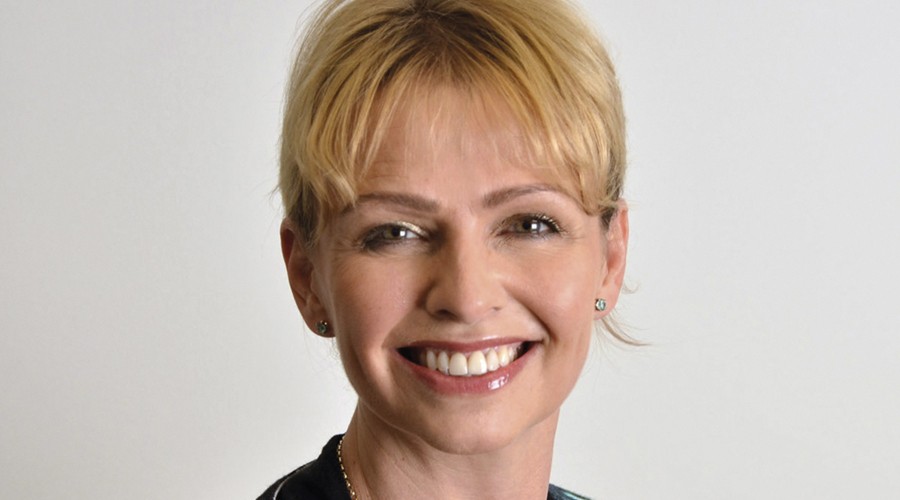
“It needs to design a system so that those over-75s who live alone and are in genuine poverty are not forced to pay, but those who can afford the relatively small weekly contribution, pay their fair share – especially as older people watch a disproportionate amount of telly.”
VLV Chair Colin Browne says that early results from his charity’s own consultation suggest that most of its members oppose the BBC continuing with the current concession, believing that it should really be funded by government. “However, recognising that the BBC accepted this responsibility – which we believe was a mistake – VLV is likely to recommend that the BBC follows an approach that minimises the reduction in its revenues while targeting those people who are most in need.”
"The [licence] concession should be limited to those who need it"
Professor Barwise agrees: “The concession should be limited to those who need it – over-75s living in receipt of pension credit. This will ensure that no pensioners are pushed into poverty by having to pay the licence fee, while greatly reducing the damage to the BBC’s TV and radio services for everyone – including the over-75s.”
But persuading Age UK and others that this is the right approach will not be easy.

